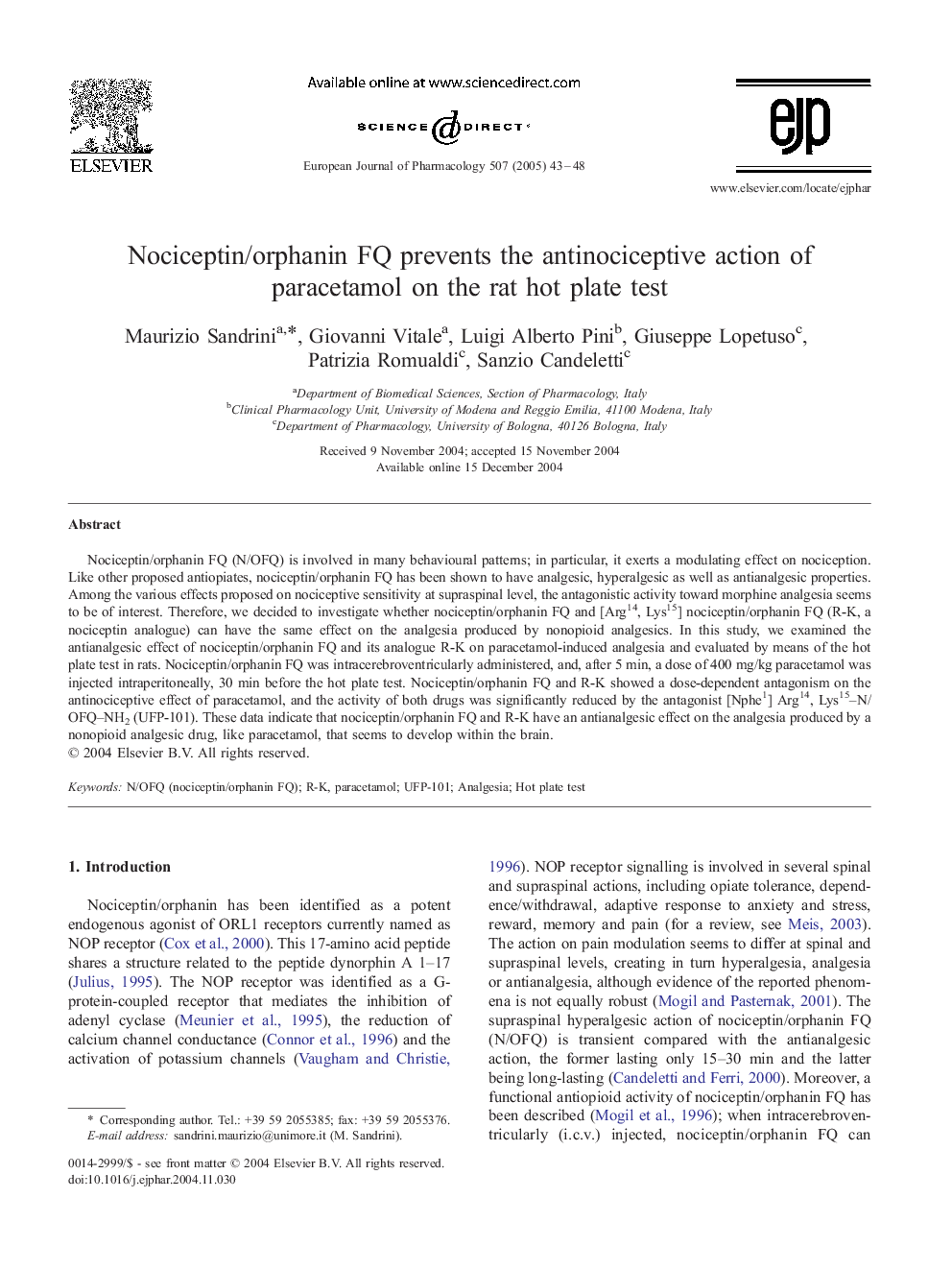| Article ID | Journal | Published Year | Pages | File Type |
|---|---|---|---|---|
| 9921555 | European Journal of Pharmacology | 2005 | 6 Pages |
Abstract
Nociceptin/orphanin FQ (N/OFQ) is involved in many behavioural patterns; in particular, it exerts a modulating effect on nociception. Like other proposed antiopiates, nociceptin/orphanin FQ has been shown to have analgesic, hyperalgesic as well as antianalgesic properties. Among the various effects proposed on nociceptive sensitivity at supraspinal level, the antagonistic activity toward morphine analgesia seems to be of interest. Therefore, we decided to investigate whether nociceptin/orphanin FQ and [Arg14, Lys15] nociceptin/orphanin FQ (R-K, a nociceptin analogue) can have the same effect on the analgesia produced by nonopioid analgesics. In this study, we examined the antianalgesic effect of nociceptin/orphanin FQ and its analogue R-K on paracetamol-induced analgesia and evaluated by means of the hot plate test in rats. Nociceptin/orphanin FQ was intracerebroventricularly administered, and, after 5 min, a dose of 400 mg/kg paracetamol was injected intraperitoneally, 30 min before the hot plate test. Nociceptin/orphanin FQ and R-K showed a dose-dependent antagonism on the antinociceptive effect of paracetamol, and the activity of both drugs was significantly reduced by the antagonist [Nphe1] Arg14, Lys15-N/OFQ-NH2 (UFP-101). These data indicate that nociceptin/orphanin FQ and R-K have an antianalgesic effect on the analgesia produced by a nonopioid analgesic drug, like paracetamol, that seems to develop within the brain.
Keywords
Related Topics
Life Sciences
Neuroscience
Cellular and Molecular Neuroscience
Authors
Maurizio Sandrini, Giovanni Vitale, Luigi Alberto Pini, Giuseppe Lopetuso, Patrizia Romualdi, Sanzio Candeletti,
